Dec
10
2015
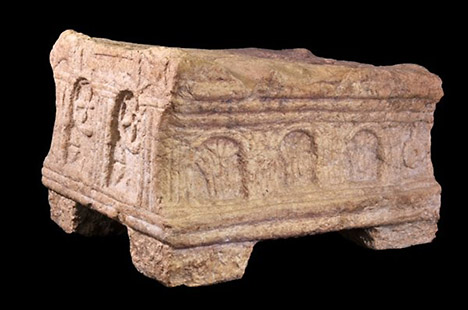
A Carved Stone Block Upends Assumptions About Ancient Judaism
BEIT SHEMESH, Israel — The carved stone block is about the size of an occasional table. It has held its secrets for two millenniums. Whoever engraved its enigmatic symbols was apparently depicting the ancient Jewish temples.
But what makes the stone such a rare find in biblical archaeology, according to scholars, is that when it was carved, the Second Temple still stood in Jerusalem for the carver to see. The stone is a kind of ancient snapshot.
And it is upending some long-held scholarly assumptions about ancient synagogues and their relationship with the Temple, a center of Jewish pilgrimage and considered the holiest place of worship for Jews, during a crucial period, when Judaism was on the cusp of the Christian era.
Continue reading
Comments Off | tags: Archaeology, Bible history | posted in Apologetics, The Last Days
May
26
2015
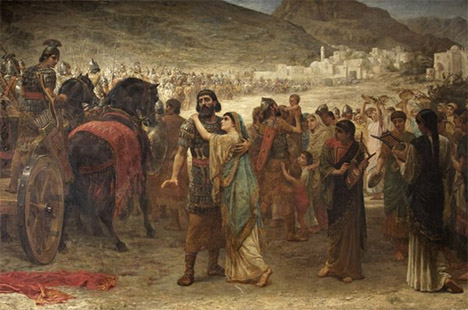
“The guardian’s role is to prevent evil; the judge’s role is to deliver from evil, once it has been allowed in.”
An excerpt from James B. Jordan’s commentary on Judges (47-51) concerning the role of Israel’s Messiahs.
What were the judges? They were civil rulers and deliverers of Israel. God is concerned with all of human life and society. It is false to try to limit His interest only to the institutional Church, though as the sacramental body of Jesus Christ, the Church is the foremost earthly “institution.” The judges show us God delivering His people from His and their enemies, in particular in social and political situations. According to Scripture, the civil magistrate bears the sword of iron (as distinct from the Sword of the Scriptures) as a threat to evildoers. A magistrate is a minister of God, no less than a Church officer is, but the magistrate is a minister of God’s vengeance, while the elder is a minister of redemption. (See Romans 13.)
Continue reading
Comments Off | tags: Bible history, Ecclesiology, James Jordan, Judges | posted in Biblical Theology
Aug
4
2010
A. T. Ross gave Bible Matrix 4 out of 5 stars on goodreads.com:
Continue reading
Comments Off | tags: Adam Ross, Bible history | posted in Bible Matrix, Biblical Theology
Apr
9
2010
Band of Brothers – 2
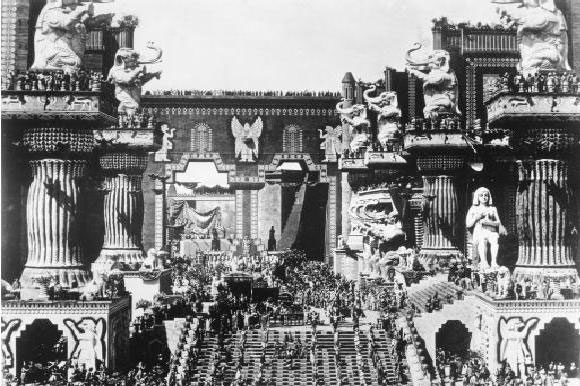
Part 1 here.
One thing the Bible Matrix demonstrates is the nature of history. Sure, it repeats itself. Everyone knows that. But our personal histories are microcosms of the lives and deaths of families, churches, nations and empires. Reading the Bible is like looking through a glass onion.
Continue reading
Comments Off | tags: Abel, Ahab, Bible history, Bible Matrix, Cain, David, Firstfruits, Genesis, Herod, Jezebel, Jonathan, Lamech, Postmillennialism, Revelation, Seth, Solomon, Systematic typology | posted in Biblical Theology, The Last Days, Totus Christus
Jan
21
2010
A quote from a great book I picked up today. Observations from an (atheistic, agnostic?) Roman Catholic perspective, but, as the blurb says: ‘far from losing himself in a thicket of erudition, Debray knows how to touch on the essential.’
Continue reading
Comments Off | tags: Bible history, Ecclesiology, Regis Debray | posted in Quotes
Nov
12
2009
 As the end of the ‘Creation week’ (slavery to Sabbath) that created a new nation, there were twelve judges. Twelve is the ‘offspring’ number, being the three of heaven married, multiplied with, the four of the Land.[1] However, we know these brave ‘champions’ were not a sabbath society but a rescue operation after the failure of the Levites.
As the end of the ‘Creation week’ (slavery to Sabbath) that created a new nation, there were twelve judges. Twelve is the ‘offspring’ number, being the three of heaven married, multiplied with, the four of the Land.[1] However, we know these brave ‘champions’ were not a sabbath society but a rescue operation after the failure of the Levites.
Continue reading
Comments Off | tags: Bible Chronology, Bible history, Bible Matrix, Boaz, Judges, Obed, Ruth, Samson, Samuel | posted in Biblical Theology
Sep
7
2009

Solomon Snubs Ally with Trashy Gift
When I was in sales, I was taught that it takes twelve times as much energy to gain a new client as it does to keep an existing one by letting them know they are not taken for granted. Same goes in geopolitics.
James Jordan writes:
One way to understand the relevance of Egypt [during Solomon's reign] is to contrast Egypt with Tyre. Hiram, king of Tyre, had been a loyal ally of David. He loved David. He clearly was a converted man. When Solomon came to the throne, Hiram could not do enough for him. He volunteered to help build the Temple, because Israel’s God was his God also (1 Kings 5). He showered Solomon with gifts (1 Kings 9:11, 14). If there was any nation Solomon should have allied with, it was Tyre.
Continue reading
Comments Off | tags: Bible history, Egypt, James Jordan, Obama, Politics, Solomon, Tyre | posted in Biblical Theology, Quotes
Jun
19
2009
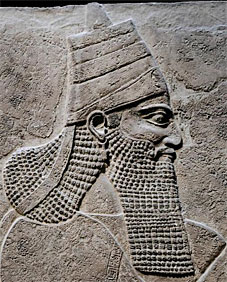 “Assyria dominated the ancient world in the centuries before the exile of Judah. Sometime during the reign of Jeroboam II of Israel (832–792 bc), and probably toward the latter part of that reign, the Israelite prophet Jonah had been used by God to convert the city Nineveh and all its citizens to the worship of the true God. Jonah 3:5 and 4:11 indicate that God showed His mercy to the children of the city, so that we are entitled to assume that there were God-fearing people alive for the next seventy or so years in Assyria…
“Assyria dominated the ancient world in the centuries before the exile of Judah. Sometime during the reign of Jeroboam II of Israel (832–792 bc), and probably toward the latter part of that reign, the Israelite prophet Jonah had been used by God to convert the city Nineveh and all its citizens to the worship of the true God. Jonah 3:5 and 4:11 indicate that God showed His mercy to the children of the city, so that we are entitled to assume that there were God-fearing people alive for the next seventy or so years in Assyria…
Continue reading
Comments Off | tags: Assyria, Bible history, James Jordan, Jeremiah, Nineveh, Remnant | posted in Quotes
Apr
21
2009
A friend of mine discovered John Piper and devoured just about every online sermon in under 12 months. It changed him profoundly. (I highly recommend Piper’s biographical series. I should listen to them again.)
Anyhow, my friend shared that Piper had made a comment about not ‘getting’ the prophets. As there are so many views on what the prophets are talking about, this is understandable. Based on what I’ve heard from James Jordan and my resulting studies, I would like to offer some helpful hints. They seem to play out, from what I can see.
Continue reading
Comments Off | tags: Bible history, Exile, James Jordan, John Piper, Literary Structure, Tabernacle, The Prophets | posted in Biblical Theology, The Last Days, The Restoration Era
Apr
15
2009
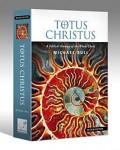 Rediscovering our identity is the solution for this lack of confidence. Israel’s history is most assuredly our history, as much as a narrow trunk suddenly fills the sky with branches. This theme of trunk and branches, Adam and Eve, head and body, Old Testament and New, Christ and the church—the Whole Christ—is the deep structure that undergirds the entire Bible, and the New Testament is but the final, majestic sweep. To regain her identity, the church must develop not only an intimate knowledge of the Old Testament, but one that is totally integrated with the New.
Rediscovering our identity is the solution for this lack of confidence. Israel’s history is most assuredly our history, as much as a narrow trunk suddenly fills the sky with branches. This theme of trunk and branches, Adam and Eve, head and body, Old Testament and New, Christ and the church—the Whole Christ—is the deep structure that undergirds the entire Bible, and the New Testament is but the final, majestic sweep. To regain her identity, the church must develop not only an intimate knowledge of the Old Testament, but one that is totally integrated with the New.
Read the Introduction and Chapter 1 here.
Comments Off | tags: Bible history | posted in Biblical Theology, Christian Life, Totus Christus
































